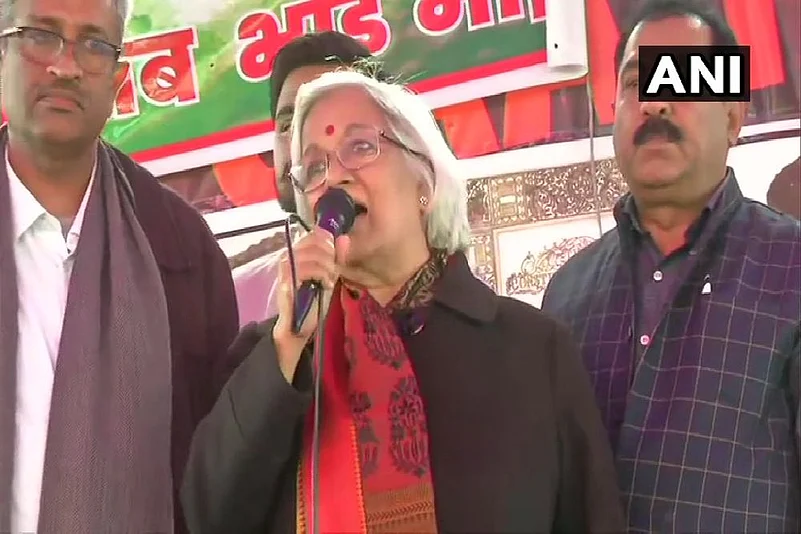Senior Supreme Court lawyer Sanjay Hegde and advocate Sadhana Ramachandran on Wednesday spoke to protesters at Shaheen Bagh, where the demonstration against the Citizenship Amendment Act and proposed National Register of Citizens (NRC) has been on for over two months.
"We met them and listened to them. We asked them if they want us to come back tomorrow as it's not possible to complete the talks in one day. They said they want us to come back tomorrow, so we will," Ramachandran told media.
The first round of dialogue lasted almost an hour and the two mediators will return to the site on Thursday to continue the discussion. The Supreme Court had on Monday tasked Hegde and Sadhna to speak to the anti-CAA protesters at Shaheen Bagh and persuade them to shift their protest to an alternative site.
Taking to stage, Sadhana explained the verdict and then urged them to heed the top court's word. "You have the right to protest and therefore continue, but think of others' rights too," she said.
"Let's resolve the issue together."
"The Supreme Court has upheld your right to protest. But then other citizens also have their rights and it should also be maintained," Sadhana told the crowd.
"We want to together find a solution to the problem. We will listen to everyone," she said in Hindi.
The demonstration on a stretch of road near Kalindi Kunj area has caused traffic snarls and the court was hearing pleas against the roadblock.
A bench comprising Justices S K Kaul and K M Joseph said its concern is about what will happen if people start protesting on roads.
Democracy works on expressing views but there are lines and boundaries for it, it said.
The top court acknowledged the people's right to protest but added that "blocking of public roads" was the only thing causing trouble.
"The concern," court said, "is what will happen if people start protesting on roads; there must be a balancing factor."
The apex court also asked Solicitor General Tushar Mehta, representing the Centre, to look into alternatives that can be agreed upon. "There are certain places like Ramlila Maidan and Jantar Mantar earmarked for protests," it said.
















